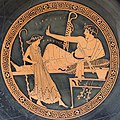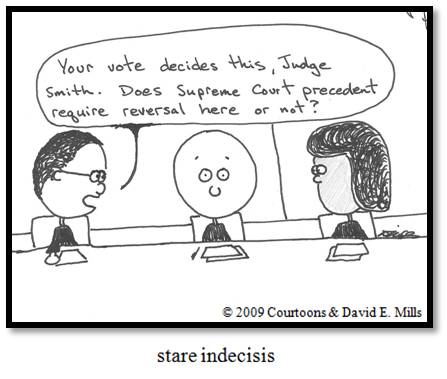 Are you a Law student, undergraduate or postgraduate? If so, you should come along to a colloquium in TCD next Saturday, 4 April 2009, from 11:00am, and hear other law students present short papers across the full range of the law. Full information about this exciting event is available here, and attendance is free, but you will need to register by email in advance. Hosted in the School of Law, Trinity College Dublin, the event has been made possible by the generous support of Allen & Overy and Matheson Ormsby Prentice. It’s going to be interesting and lot of fun (and there’s a wine reception at the end). So, what are you waiting for? Send that email now!…
Are you a Law student, undergraduate or postgraduate? If so, you should come along to a colloquium in TCD next Saturday, 4 April 2009, from 11:00am, and hear other law students present short papers across the full range of the law. Full information about this exciting event is available here, and attendance is free, but you will need to register by email in advance. Hosted in the School of Law, Trinity College Dublin, the event has been made possible by the generous support of Allen & Overy and Matheson Ormsby Prentice. It’s going to be interesting and lot of fun (and there’s a wine reception at the end). So, what are you waiting for? Send that email now!…
Author: Eoin
The good, the bad, and the ugly
 Three stories from today’s Irish Times caught my eye. First, the good. The Press Council of Ireland and the Office of the Press Ombudsman launched their first annual report yesterday. The press industry undoubtedly did a good thing in establishing the Press Council and the Ombudsman, and yesterday’s report on the first year of operation shows the wisdom of that decision. The launch of the report is covered in the Home News section of the Irish Times, and welcomed in the lead editorial . From the report [with added links]:
Three stories from today’s Irish Times caught my eye. First, the good. The Press Council of Ireland and the Office of the Press Ombudsman launched their first annual report yesterday. The press industry undoubtedly did a good thing in establishing the Press Council and the Ombudsman, and yesterday’s report on the first year of operation shows the wisdom of that decision. The launch of the report is covered in the Home News section of the Irish Times, and welcomed in the lead editorial . From the report [with added links]:
Praise for complaints system after release of Press Ombudsman’s report
AGGRIEVED READERS made over 370 complaints about newspapers and magazines last year during the Press Ombudsman‘s first year of work, his annual report reveals. … Reviewing the performance of the Press Council of Ireland and the Office of the Press Ombudsman in their annual report published yesterday, council chairman Prof Tom Mitchell said the innovative and effective regulatory system offered significant benefits to the press and public. …
Moreover, speaking at the launch, the Minister for Justice, Dermot Ahern, said he hoped that the long-delayed Defamation Bill, 2006 would become law by the summer, an aspiration which Prof Mitchell greeted as “wonderful news”.…
Cowengate follow-on: a question, and more pictures at the exhibitions
- Emerson, Lake and Palmer performing their 1971 album version of Pictures at an Exhibition
The Cowengate controversy certainly caught the imagination this week; and, by way of update to my earlier posts on the topic, I’ve collected some more links about the affair below. Perusing the coverage in print, broadcast, and online, a question has repeatedly occurred to me: for all that there was online outrage, how much of it was reflected in the print or broadcast media? My impression is that whilst online commentary reflected and often relied upon the print or broadcast media, there was (by and large) very little traffic the other way. Is this a fair assessment? Answers, please, in the comments below.
[The remainder of the post is another compendium of links relating to the Cowengate controversy].…
A moot point
Why should “Anon.” get all the best lines? Reflections on anonymous political speech
 Given that I have strongly defended anonymous speech on this blog (here and here), Sarah Hinchliff Pearons‘s blogpost Accountability and Anonymity: Rethinking the Value of Anonymous Speech caught my eye. Her basic point is
Given that I have strongly defended anonymous speech on this blog (here and here), Sarah Hinchliff Pearons‘s blogpost Accountability and Anonymity: Rethinking the Value of Anonymous Speech caught my eye. Her basic point is
… not to argue that we should not try to prevent lawsuits designed to stifle free speech. … Instead, I am arguing that in designing solutions to this problem, we must be careful not to place a premium on anonymous speech. While there are certainly circumstances under which anonymity is necessary, those situations are and should be limited. There is a reason why journalists are strongly discouraged from quoting anonymous sources – it prevents accountability. As we transition into an environment where more people than ever have the ability to communicate their ideas and opinions, it is more important than ever that we encourage accountability in the marketplace of ideas. Incentivizing anonymity is certainly not the way to do that.
Similar points and cases are discussed here here, here and here.
On the other hand, but there are times when speech is more important than accountability. Indeed, it is the very fact of the lack of accountability provided by anonymity that can make it a necessary means of dissenting political expression.…
Bentham and judicial retirement
![]() Jeremy Bentham (1748-1832) (left) was a utilitarian philosopher, whose radical ideas on education inspired those who founded University College London. Nowadays, the Bentham Association (formerly the Bentham Club) is the Alumni Association for UCL’s lawyers, and it annually hosts a Presidential Address from an invited senior lawyer. This year’s address was given by Lord Pannick QC on the topic:
Jeremy Bentham (1748-1832) (left) was a utilitarian philosopher, whose radical ideas on education inspired those who founded University College London. Nowadays, the Bentham Association (formerly the Bentham Club) is the Alumni Association for UCL’s lawyers, and it annually hosts a Presidential Address from an invited senior lawyer. This year’s address was given by Lord Pannick QC on the topic:
“Better that a horse should have a voice in that House [of Lords], than that a judge should” (Jeremy Bentham).
Replacing the Law Lords by a Supreme Court
It broadly concerned the implications of the removal of the final court of appeal from parliament, and can be heard online here. It covers a wide range of very interesting material, and is very well worth listening to. There’s no text yet online, but one aspect of it appears in Pannick’s column in today’s Times, taking the field on an issue I’ve looked at already on this blog (here and here); some extracts:
…Seventy is far too early for a supreme court judge to retire . . .
… The argument for a retirement age of 75 for all supreme court justices is very simple. Those appointed are the cream of the judiciary.
Cowengate and Freedom of Expression
Suzy must get the prize for popularising the best political coinage of the day, for – so far as I can see – it is she who has run with the name “Cowengate” for the sturm und drang surrounding satirical portraits of the Taoiseach (Prime Minister), Brian Cowen. In a piece of guerrilla artistry as ingenious as the coinage Suzy has popularised, caricatures of Mr Cowen were anonymously hung on the walls of the National Gallery of Ireland and the Royal Hibernian Academy. Once they were discovered, they were removed, but not before they had garnered sufficient publicity for RTÉ (Raidio Telefís Éireann, the national state broadcaster) to broadcast a story about them on the flagship 9:00pm television news programme.
It has been the occasion for lots of bad puns and some embarrassment on the part of the Taoiseach, the Gallery and the Academy, but in the ordinary course of things, the story should have blown over after about 48hours. However, things then took two turns for the worse. First, RTÉ apologised to Mr Cowen and his family or for any disrespect shown to the office of Taoiseach by their broadcast.…
Cowengate: Pictures at an exhibition
- Ravel‘s orchestration of Mussorgksy‘s Pictures at an Exhibition, performed by the Philharmonia Orchestra conducted by Esa-Pekka Salonen at the BBC Proms in August 2006
This post is an addendum to Cowengate and Freedom of Expression (above). In the original version of that post, I had a paragraph of links to other coverage. Like Topsy, that paragraph growed and growed, so I’ve taken the list of links out of that post and put them here.…

